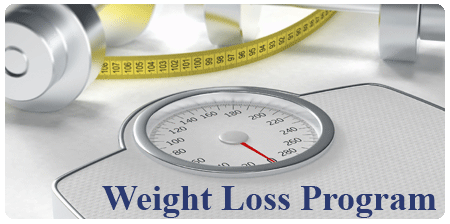
Medifast
(do-it-yourself or medical modified fasting program)
Type of Counseling: Over the Internet or via call center, or by physicians, nurses, nutritionists, or company counselors
Typical Cost: 500* for average do-it-yourself customer, higher for medically supervised program (300 for first month), involving MD exams, lab tests, etc.
Type Program: Medical low calorie meal replacement or non-medical do-it-yourself plan
Type of Foods Used: Company meal replacements plus grocery store food
At-Home or Direct Mail Plan Available? Yes
The cost is about 300/month and most customers stay on the plan one month. The total cost depends on the amount of weight one has to lose. Most Medifast clients dont go through an MD and buy the products directly via phone or the website. A 16-week medical program would cost more than 1,000.
Headquarters
Medifast (subsidiary: Jason Pharmaceuticals, Inc.)
11445 Cronhill Drive
Owings Mills, MD 21117
410-581-8042 or 1-866-463-3432
Take Shape For Life subsidiary: 1-800-572-4417
Website: http://www.medifastdiet.com
Summary & History
Medifast® has been around since 1981, operating previously only within the medically supervised Low Calorie Meal Replacement fasting segment of the weight loss industry. It ranks among the top modified fasting vendors such as HMR and Optifast®, in terms of the number of physicians, clinics, and other healthcare sites, and number of people using this type of program.
Medifast® is a leader in soy-based medical meal replacement products used by customers and medical practitioners for over 20 years. With over 1 million patients and 15,000 doctors previously working with its products, this program has been pre-sold to much of the consumer base. The main end-users of the Medifast® program are consumers and some clinics and hospitals. This is a liquid supplement modified fasting program for the treatment of obesity. Many items are Kosher certified.
Medifast® is no longer primarily a medically supervised weight loss program. Most customers now buy Medifast® products directly from the company, with no medical supervision required. Yes, it still does offer the medical option, but claims that only 10% of its current customers fall into this category. The company is not as much of a diet food company as Jenny Craig, Weight Watchers or NutriSystem. These companies derive most of their revenues from the sale of full mealsbreakfast, lunch and dinner entrees, and have more extensive product lines with more real food items. Rather, Medifast is primarily a meal replacement company, that has a few solid food items such as chili, oatmeal, and now, scrambled eggs. But, you will not find dinner items such as pasta, chicken, beef, etc.
The company is trying to make the transition to a full diet food product line consumer oriented company, but is not quite there yet. Consequently, its a much smaller operation than Jenny, Weight Watchers or NutriSystem, in terms of sales. However, this is not to say its products and program are not as good or effective.
One can access the Medifast® programs via:
- At home by phone or the Web
- Take Shape for Life health advisors, or
- A healthcare professionals office (physician, dietitian, etc.).
For those dieters living outside the United States, Medifast® services are available in Asia (India, Hong Kong, Singapore) via the Dr. Diet plan. T
The Nutrition Institute of Maryland was founded in 1972. William J. Vitale, M.D. served as its Medical Director of Clinical Services since 1974. In 1976, the company is said to have instituted the first Protein Sparing Fasting Program in the Mid-Atlantic states, and in 1977 the Institute was among the pioneers to implement Defined Formula Supplemented Fasting programs in the private sector. Those programs were derived from research at Case Western Reserve and the Mt. Sinai Medical Center of Cleveland. It soon became known as the Medifast® program.
During the past several years, Medifast® has brought in new management and became a public company, giving it access to capital that allowed it to expand beyond doctorâs offices to the general public. Consequently, it began marketing directly to the public and doing a lot more advertising and marketing, to increase awareness of its name. The company has also introduced many new products in the past two years, and now has over 50items to choose from (including the supplements, nutrition bars, teas, soups, chili, hot cocoa, pudding, scrambled eggs, snacks, oatmeal and meal replacement shakes).
The firm has been more aggressive than other medical programs/Low Calorie Meal Replacement vendors in its advertising programs, which have included national print and radio, direct mail, cable TV, trade shows, and national directory listings, in addition to the www.medifastdiet.com web site and the 1-866-MEDIFAST customer service line.
The company recently expanded its health and wellness spectrum to include disease management products and healthcare accessories. In 2004, Medifast® launched Medifast Plus for Womenâs Health and Medifast Plus for Joint Health, in addition to Medifast Plus for Diabetics.
In 2002, Medifast, through its Take Shape For Life, Inc. subsidiary, established a Health Institute to create a virtual clinic, under the direction of Dr. Joseph DiBartolomeo (formerly a 20-year veteran of Nutri/System).
Recent Developments
Medifast & Cuts Fitness for Men Announce Partnership Targeting Regular Guys
Cuts Fitness franchises and trainers will offer each Cuts member personalized attention and guidance with product selection and adherence to the Medifast program. Men who order Medifast through Cuts will receive free personal support and a week free of Medifast with their first purchase of a variety package.
To enhance its fitness offering, Medifast® will offer its male customer base discounted gym memberships to the approximately 75 Cuts Fitness For Men franchises. For those who dont have access to Cuts gyms, Medifast will be offering the newly published book by Perigee released May 1, 2007, Cuts Fitness For Men – The Ultimate 30 Minute Workout.
Cuts Fitness For Men provides 30 minute workouts for men through its franchise network of 75 locations in 23 states and 5 countries. The circuit training offers members 16 stations consisting of cardio and strength training machines that provide an effective, full body workout for guys who dont have the time or desire to go to a traditional gym.
Customers will be able to order the new program starting in the month of June by visiting a participating Cuts Fitness franchise.
Types of Programs Available
The company basically has three distribution channels to offer its services to dieters:
- Medifast® Direct consumers can purchase products directly from the company by phone or the Internet, with support from nurses and physicians.
- The Lifestyles by Medifast® Program a network of MDs and healthcare professionals who support patients. Management estimates that 15,000 doctors have used the program since 1980. Medifast® also provides access to medical practitioners by phone or email, for those who donât have a participating physician near them. Traditional physicians⊠these MDs carry the product line and implement Medifast® programs on their own or refer their patients to Medifast.
- Take Shape For Life⊠a subsidiary that provides virtual clinics. These clinics are implemented by 4,000 health advisors, who recruit entrants and provide them with counseling, support and product samples. This is a direct sales organization.
Products used include:
- Medifast 70 shakes⊠recommended for men. May be used as complete meal replacement or modified plan that includes one meal a day.
- Medifast 55 shakes⊠recommended for women. Similar to Medifast 70, except for the protein content. Medifast 55 has 11 grams of protein per serving while Medifast 70 has 14 grams per serving. The Medifast 70 also has about 10 more calories per packet.
- Medifast Plus⊠can be used by either men or women. There are 4 Medifast Plus plans, designed for: a) people with diabetes, b) those with coronary health issues, c) joint health, and d) womens health (menopause).
- Additional meal replacement products include: bars, soups, chili, oatmeal, pudding, cappuccino, fortified drinks, and tea.
Medifast Plan Options
5 & 1 Meal Replacement Plan (Medifast 55, 70 or Plus)
Requires five Medifast® supplements a day plus a daily meal consisting of a serving of lean meat and a green salad (which you supply).
Complete Meal Replacement (Medifast 55 or 70)
Requires five Medifast® supplements a day, no regular food. Recommended if you have a lot of weight to lose or you prefer to avoid all food choices. Must be done under a doctors supervision.
It is recommended, as with all weight loss programs, that you see your doctor for a general exam and blood test panel before you begin the program. In addition, lab tests should include a CBC, chemistry panel, lipid profile, thyroid panel, and urinalysis. If you are over age 40 or have a history of heart disease, you should have an EKG done as well. Follow-up visits with your physician should be done from once a month to once every three months.
With the Medifast Womens 5 &1 program, its claimed that you can lose 20 lbs. in 30 days. You eat every 2-3 hours.
Basic steps of the program, if one uses the Medifast® medically supervised approach, include:
- Orientation: a discussion of the program, fees, expectations, etc.
- Evaluation: patient completes information forms, takes physical exam (includes lab and EKG), discuss present/past medical history, his/her motivating factors.
- Weight Reduction: patient is placed on the plan most appropriate, returns for weekly office visit, bi-weekly physician consult, monthly laboratory.
- Realimentation & EKG: progressive food encounters and continued weekly office visits and monthly laboratory.
- Maintenance of goal weight: follow-up consultation, Take Shape Program, optional LifeStyles classes.
Fees
Do It Yourself Non-medical Plan
As noted above, most Medifast® customers dont use the more structured medical plan, but a do-it-yourself plan that uses meal replacement products. In this case, the typical cost per client is about 500. The 28-day 4-week Variety Package for 275 (free shipping, free shaker jar plus 3 bonus meals) includes 49 shakes, 21 oatmeals, 28 soups, 7 banana puddings, and 7 cappuccinos. There is also a bill me later plan available, with payments as low as 10 per month.
Medical Plan
Estimated costs of the Medifast® medically supervised program are broken down as follows below (will vary by physician and region of the U.S.). Some of these fees are charged by your physicianonly the supplement is purchased from Medifast®
- Initial doctors consultation, exam, blood tests, urinalysis, EKG – 192.00
- Follow-up visits (dietitian weekly, MD every 2 wks.) 30/wk. X 15 weeks – 450.00
- Blood tests, monthly, 28/month X 3 – 84.00
- Medifast 55 supplement, 5 boxes per patient at 67 ea. per week, for 16 weeks – 1,076.00
- Total 16-week program: 1,802.00
Online Tools – The Medifast® Website
In July 2006, Medifast launched a new website: www.MyMedifast.com, an online community that provides customized weight loss tools to help people successfully lose weight. MyMedifast offers users an interactive community where dieters can seek support by participating in a wide variety of interfaces including joining regularly scheduled chats about nutrition, dieting and exercising, or posting motivational messages on message boards.
One of the most significant features on the MyMedifast website is the customized Meal Planner. This feature provides a database with thousands of food items and their nutritional profiles to give users all of the necessary information to make healthy food choices. This section of the site also allows the user to log their weight, measurements and exercise on a daily basis. The website calculates this information and delivers a report to the user, showing if they are meeting their goals.
Users can run reports and see snapshots such as a daily nutrition score that highlights totals for calories, fat, sugar, proteins, carbohydrates etc. The website also offers users the option of receiving daily and weekly tips and articles. The MyMedifast website features healthy recipes, tips for dining out and various channels that provide additional resources to help dieters stay on track with their weight loss goals, including the following:
- Blogs and message boards
- Eat right channel (dining out tool, food locator, healthy recipes)
- Exercise smart channel
- Feel good channel (motivational tips)
Research Findings of the Medifast® Program
In November 2003, Medifast® announced preliminary results of a 2-year study conducted by Johns Hopkins University. The purpose of the study was to examine the health effects of weight reduction for overweight and obese Type 2 diabetics. The Johns Hopkins study concluded that:
- Patients on the Medifast® program of portion-controlled foods (that are specially formulated for diabetics) lost weight more quickly than those on the American Diabetes Association diet.
- Patients on the Medifast® program were able to significantly reduce or eliminate their medicines, including insulin.
- Patients following the American Diabetes Association dietary guidelines didnât lose as much weight, were slower to lose weight and didnât reduce or eliminate as much medication during the study.
Comments
BestDietForMe.com analysts know that this organization has been around a long time, operating a very good program, until 2000 exclusively through medical professionals. The company wants to grow. It is no longer content to serve just those dieters with serious obesity and medical issues. And, it no longer wants to serve the United States market only. So far, this expansion seems to be a good thing, in that it offers a virtual clinic, is developing more products, and has added services appealing to other womenâsâ health issues, and adolescents as well. In addition, you can reach the companyâs staff by phone or the Internet. The Take Shape For Life program seems to be a hit. The one thing we wonder about is just how good the companyâs 4,000 advisors or counselors areâthe ones that are not physicians. The customer should ask some questions to see if they are up to par, vis-Ã -vis other weight loss programs.
Website: http://www.medifastdiet.com
Summary of Modified Fasting Programs By Hospitals, Clinics, MDâs
Approximately 550 hospitals and clinics nationwide are now using a modified fasting Low Calorie Meal Replacement programs.
Hospitals pay for the Low Calorie Meal Replacement supplement product, but they get free staff trainings and program literature. Staff typically used includes dietitians, nurses, ex-patients, and psychologists. These people provide the patient counseling.
Strong recommendations have come from the NIH and others that the diet medications be used only with strictly supervised medical programs that provide behavioral components. There is a high dropout rate when the medications are used alone, and one usually sees only small amounts of weight loss.
Marketdata estimates that fully 30% and perhaps more of the total patients in a modified fasting program are re-enrollees (clients that were on the program before), rather than new patients. We believe that many people that were on the diet drugs came back to these fasting plans.
The rise in popularity of the diet medications is bringing more dieters into the realm of medically supervised programs. This can only help boost enrollments in Low Calorie Meal Replacement plans, as some will be found to be unsuitable candidates for the medications.
The increase in the number of bariatric surgeries has benefited Low Calorie Meal Replacement programs and the demand for fasting supplements. Many patients are put on the supplement to lose weight prior to the surgery, to make the operation go smoother, and many patients also use the supplement after the surgery, to assist in the long-term weight maintenance phase.
Most Low Calorie Meal Replacement programs have made their programs more flexible, adding intermediate level (more moderate) programs, food entrees, nutrition bars, and higher calorie levels.
Insurers are reimbursing more often for the behavior modification/counseling portion of fasting programs, a good sign.
Although liquid protein diets have been available to American consumers since the mid-late 1970s, many of todays competitors did not exist until the early-mid 1980s. For example, OPTIFAST® (Novartis Nutrition) has been around the longest, since 1976 in the United States. Medifast® was introduced in 1980 and the HMR program in 1983. Most of the other companies, however, did not appear until much later Ross Labs New Direction (now part of Robard) – 1988, Ultrafast â 1987 (now out of business), Baylor Fast (now not operating) â 1985.
Typically, about 70-80% of those on medically monitored fasting programs are women. Their average age is 43 years. Medicare and insurance firms will reimburse patients for the cost of the physical exam and any tests related to obesity conditions, but they generally do not reimburse for the supplement formula.
Strictly from a cost/benefit approach, a Low Calorie Meal Replacement program, if successful in maintaining weight loss over the long term, will eliminate future need for ongoing medication, surgeries and other, more costly procedures. Consequently, the Low Calorie Meal Replacement can be viewed as a preventive measure.
Obesity research expert Thomas Wadden pointed out to Marketdata that Low Calorie Meal Replacement programs are actually more powerful or effective in losing weight than are the diet medications. He says that itâs probably a waste of money for a dieter to use both a Low Calorie Meal Replacement program and the medications. With a Low Calorie Meal Replacement program, one can expect to lose up to 20% of body weight.
A specific diagnosis is always required for a Low Calorie Meal Replacement patients insurer to reimburse them for part of the total program. The cost of the supplement is not covered (which may represent as much as 50% of the total bill). On average, the Low Calorie Meal Replacement supplement alone accounts for 47% of the total cost of the program, and is not reimbursed by health insurance.
Personnel at various Low Calorie Meal Replacement companies say that the most common diagnoses pertaining to patients includeobesity, Type 2 diabetes, hyperlipidemia, hypercholesterol, hypertension, hypertriglycerdemia, degenerative joint disease, hyperglycemia, arthritis, and sleep apnea.
Information provided by BestDietForMe.com. Click Here to learn more.


















